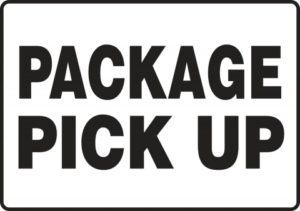How do you feel about phrasal verbs? Do you try to avoid them?
There are so many, aren’t there? And if you listen to real native English speaker conversations, you will hear them use many. Particularly in informal, everyday conversation.
But the key with learning phrasal verbs is to focus on the most important, most common ones that are useful for daily life. If you can learn and memorise even just 20 key phrasal verbs that we often use, this will definitely boost your English fluency and listening ability.
Watch the video below to learn 10 of the most common and useful phrasal verbs and how to use them effectively.
You can read the notes below to learn the grammar of phrasal verbs and examples sentences of each one.
HOW DO WE USE PHRASAL VERBS?

TRANSITIVE or INTRANSITIVE?
It is important to know that phrasal verbs can be transitive or intransitive. Transitive means the phrasal verb can be followed by a direct object (a noun) For example;
To GIVE UP something is TRANSITIVE. This phrasal verb is followed by a direct object.
“I want to give up smoking”.
“She has decided to give up alcohol”
BUT…
To BREAK DOWN is INTRANSITIVE. This one does not take an object.
“My car has broken down”
SEPARABLE OR INSEPARABLE?
Transitive phrasal verbs can be SEPARABLE or INSEPARABLE. This means that some phrasal verbs can be separated by an OBJECT, but some cannot.
For example;
To PUT ON is a SEPARABLE phrasal verb
“I’m going to put on a jacket.”
or
“I’m going to put a jacket on.”
BUT…
To LOOK AFTER someone or something is an INSEPARABLE phrasal verb.
“I have to look after my baby sister tonight”.
You can’t say “I have to look my baby sister after tonight”. This is not correct!
So here are 10 COMMON PHRASAL VERBS (and how to use them)

- GIVE UP: separable / transitive
To ‘give up’ something means stop trying to do something or ‘admit defeat’.
- “I can’t get this computer program to work. I’m giving up!”
It can also mean to permanently stop a habit, routine or practice.
- “I’ve decided to give up alcohol. I want to get healthy”
SEPARABLE:
This phrasal verb can be separable. You can ‘give something up’.
- “Sarah played piano for many years but she decided to give it up when she turned 20″
TRANSITIVE:
‘Give up’ can take a direct object.
- “I gave up my job last week”.
2. PUT OFF: separable / transitive
To ‘put off’ something means to delay or postpone a task or obligation.
- “I hate cleaning! I always put off the housework until it has to be done”.
SEPARABLE:
This one is also separable. You can “put something off”.
- “I think we should put the meeting off until next week”.
We often use this in the separable form with the object pronoun – ‘it’.
- “You really should call your mother. Don’t put it off!”
- “Have you done your homework? You shouldn’t put it off“
TRANSITIVE:
- “I always put off my maths homework.”
3. CHECK OUT: separable / transitive
To ‘check out’ something (or someone) means to take a look at something that you haven’t seen before.
- “You should check out the new museum in the city centre. It’s really interesting!”
It also means to evaluate or try something or someone.
- “I’m not sure how much it costs to buy a house in New York. I’ll check it out“.
SEPARABLE:
This one is also separable. So we can ‘check something out’ or ‘check out something’
- “Let’s go and check that new bookstore out.”
TRANSITIVE.
This takes a direct object: “I’m going to check out that movie.“
4. LOOK UP: separable / transitive
To ‘look up’ something (or look something up) means to check a fact or get information about something.
- “I’ll look up some hotels that we could stay at on the holiday.”
SEPARABLE:
We often separate this phrasal verb with the object pronoun ‘it’.
- “Are there any good restaurants in this area?”
- “I’m not sure. You can look it up on the internet.”
TRANSITIVE:
We often add a direct object after this: “I often look up old historical photos on the internet”

5. FIND OUT: inseparable / intransitive
To ‘find out’ means to gain knowledge or discover information.
- “I found out that the painter of that portrait was born in Sicily.”
- A: “Do you know where I can buy a coffee table?”
- B: “I’ll find out for you”.
INSEPARABLE:
We don’t separate this phrasal verb with an object. So we can’t “find the information out”.
INTRANSITIVE:
It is usually not possible to follow ‘find out’ with a direct object. An exception to this would be ‘find out the answer’.
6. WORK OUT: separable / transitive
The most common meaning of ‘work out’ is to find a solution to a problem.
- “I’ll work out what to do about this problem later.”
This phrasal verb is used a lot in general conversation.
We also use it to mean ‘develop or result in a satisfactory way’
- “I really hope your marriage works out for you.”
- “They tried to start a cleaning business but it didn’t work out.”
SEPARABLE:
We can ‘work something out’ or ‘work it out’.
- “Look. Surely we can work this problem out between us.”
TRANSITIVE:
‘Work out’ can take a direct object.
- “I’m sure we will work out a solution.“
Another common phrasal verb which means the same as ‘work out’ is ‘sort out’
- “The business partners need to sort out the dispute before they can move forward.”
SEPARABLE
This can be separated.
- “Don’t worry. We’ll sort this issue out as soon as possible.”
TRANSITIVE
- “Can you help me sort out my finance?”
7. GET ON WITH: inseparable / transitive
This is a very common phrasal verb. It’s actually a ‘multi-word’ phrasal verb. So we must always say “get on with”.
We can ‘get on with’ someone. This means to have a good relationship with this person.
- “My brother and I really get on with each other”
- “Teresa doesn’t get on with Tom. They argue all the time”
INSEPARABLE
We can’t separate this phrasal verb. But we must use it with the preposition ‘with’.
TRANSITIVE
We can get on with someone.
- “I get on with my sister“.
ANOTHER COMMON MEANING:
To get on with something means to start or continue doing something, especially work.
- “Ok, we’ve wasted enough time. Let’s get on with this project!”
- “I have a lot of work to do. I’d better get on with it.”


8. THROW AWAY: separable / transitive
This means to discard or dispose of something that you don’t need.
- “We threw away all our old clothes and bought new ones!”
- “I think we should throw away that old table”
We can also say ‘throw out’ something.
- “Can you throw out those old apples please?”
SEPARABLE
We can ‘throw something out’.
- “I’m going to throw those books out.“
TRANSITIVE.
This can take a direct object.
- “You shouldn’t throw away good food”.
9. PICK UP: separable / transitive
This is a very common phrasal verb which means to collect someone or something from a place.
- “I’m going to the airport to pick up my mum.”
- “Can you pick up a package for me from the post office?”

SEPARABLE:
“I have to pick a parcel up from the post office.”
TRANSITIVE:
PICK UP someone or something.
- “I’m going to pick up my kids from school.”

10. SHOW UP: inseparable / intransitive
The most common and everyday use of ‘show up’ is to appear or arrive somewhere.
- “They showed up at the party 3 hours late.”
- “What time do we have to show up at this party?”
INSEPARABLE:
We cannot separate this phrasal verb. We don’t ‘show something up’ with this meaning.
INTRANSITIVE:
Show up does not take a direct object. So, we don’t ‘show up house’ or ‘show up my home’.
We have to say “He showed up at my house.”
So there you have 10 very common and useful phrasal verbs. And, you know how to use them!
I suggest you write down these phrasal verbs. Make a list. Make sentences using them. Put them on flashcards and post them around your house. Have fun practicing! Start to use them in your speaking.
- 5 Benefits of Journaling for English - September 23, 2020
- 3 Features of Australian Pronunciation - March 2, 2019
- 4 Idioms For Work - February 22, 2019

Hi Nick. It seems to me that “Throw away” is very similar to “Get rid of”. Am I wrong?. By the way, thanks for this useful video.
Hi Ferran,
Sorry for the delay. Yes, “throw away” is similar to “get rid of” – exactly.
Thanks for your comment.
Nick